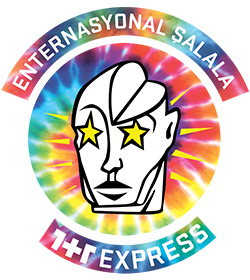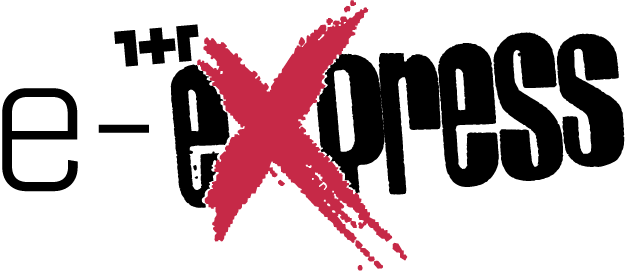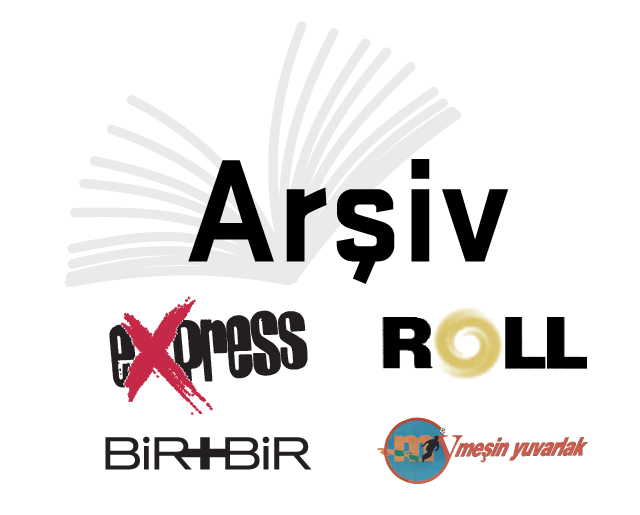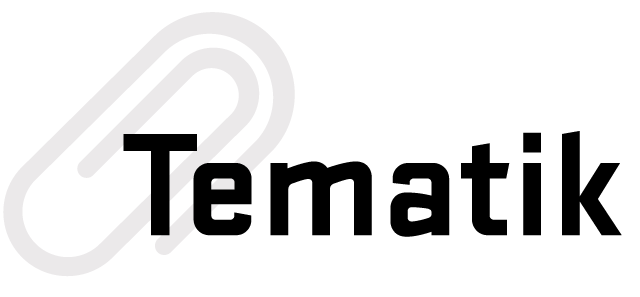As Istanbul’s historical and outstandingly precious agricultural areas have been cruelly wiped off the map, in a corner of the city a promising revival is flourishing. On Prinkipo / Büyükada of the Prince Islands, a cooperative is turning its face to the soil to revive the agricultural production which dates back to centuries ago. The co-founders of The Büyükada Agricultural Development Cooperative, Taylan Kirteke and Semih Aygün tell their inspiring story.

How and when did you come up with the idea of establishing an agricultural cooperative?
Taylan Kirteke: It’s been over a year since the cooperative was established. It started with the idea of beekeeping. After completing an apiculture course, we were discussing how to put into our beekeeping skills into practice and our co-founder Semih (Aygün) suddenly said, “Why don’t we set up a cooperative?”.

What gave you the idea of beekeeping?
Taylan: For quite some time, we were wanting to get involved in agricultural production. The island (Prinkipo / Büyükada of the Prince Islands) has a wonderful flora; nobody was taking advantage of this. We had a very limited amount of land. So, at the time, beekeeping was the best option. Beekeeping doesn’t need a lot of equipment and doesn’t require a lot of capital. We thought, we can do this. The flora here is unique and that meant that honey produced here would be like no other in Turkey. The deciding factor in the quality of honey is the flora in the region.
Semih Aygün: The flora on the island is the source of nectar for ten months throughout the year. We started with ten hives to see how successful we could be. We maintain the hives with the pesticides we make ourselves. We do not use any chemicals. We use clean drinking water for the watering needs. The island is not industrialised; there is no exhaust pollution, no chemical spraying, the soil has not been fertilised for a century. In order for honey to be considered organic, the bees must feed from flowers growing in organic soil. In this sense, this island is perfect.

So, why become a cooperative?
Semih: We wanted to join our forces, so to speak, bring our experiences to the table, jointly purchase a place, some beehives and produce collectively. In order to establish a cooperative, legally you need seven people. We started out with seven people and in a short time there were twenty of us. Beekeeping was the first step for us. The common factor among the members of the cooperative is to produce products unique to the Prince Islands. More than a century ago, the Islands flourished with significant agricultural activities. Vineyards, olive groves, floristry. Today, there is no production. You can only find restaurants, motels, kiosks, horse carriage tours… We thought, “so, if agriculture is possible on the Islands, why don’t we try to revive it!”
Taylan: The Prince Islands are located in the Marmara Sea and has its own micro-climate. The climate is similar to that of the Mediterranean. Oranges, citrus fruits, pistachios, dates; these all grow on the Islands. Despite this, there is very little land area which can be planted or cultivated. It really is a valuable heritage and should be dearly protected.
You said that beekeeping was the first step; how did you progress from there?
Semih: We discussed what we could do in the long-term, what our dreams were, what are our aims during the process of establishing the cooperative. But to be active in agriculture, you firstly need land.
Taylan: We have a friend, who happens to be an academic. He has a land about one hundred decares. We told him about our ideas about agriculture, to become a cooperative, and what our aims were. He became interested and allowed us to use his property. When we visited the property, we were greeted with wild olive trees. We knew there were olive trees on the island, but we were surprised to see nine hundred trees! Nine hundred olive trees, a century old. Not planted by anyone, wild olive trees!
More than a century ago, the Islands flourished with significant agricultural activities. Vineyards, olive groves, floristry… Today, there is no production. We thought, “why don’t we try to revive it!”
Semih: We should remind that this is the largest colony of wild olive trees in Turkey. Usually these trees are found scattered.
Taylan: The İzmir Olive Research Institute is one of the prominent agricultural institutions in Turkey. We contacted them; they sent their experts. We also invited the experts from Marmara Birlik Cooperation, the most effective one in the region.
Semih: They examined all the trees and evaluated their quality. We registered all the trees. We consulted the experts on how to care for the trees, we got loaded with information.
Taylan: There is a common misunderstanding: “Graft the wild olive trees and you will get more yield!”. You can find olives from Algeria to Spain, from Israel to everywhere throughout the Mediterranean. But none are quite like these olives. Nobody bothers with wild olives; and there are reasons why this is the case. Firstly, they are scattered in nature and secondly, the size of the olives is small. You can obtain a litre of oil from about four our five kilograms of olives. But you need about thirty kilograms of wild olives for a litre of oil. We wanted to keep the “wild olive as heritage” and we decided against grafting.

Semih: It tastes great and it is of a high quality. It’ value is like gold.
Taylan: For thousands of years, humans have collected olives in nature; pressed the olives, used it on their wounds, mixed it with various other herbs and taken it in times of illness. It’s like an all-purpose medication. Olive oil is the raw material for traditional Anatolian medicinal practices. Wild olives are of a very high quality, its rate of oxidation is very low. Olives are an economic value and they are an important source of human health. To make a long story short, we picked the olives, pressed them and here we have this olive oil.
Do you have any paid employees?
Semih: We do everything ourselves.
Did you expand your area of activity after beekeeping and olive cultivating?
Semih: The biggest challenge on the island is water. You cannot initiate any large scale cultivation or production that requires a lot of water. You can only produce, say, tomatoes or green beans on a scale that meets the needs of your own household. That’s one of the reasons why people kept orchards which do not require a lot of water, vineyards or olive groves. So we started to cultivate oyster mushrooms, as this was feasible.
The Prince Islands are located in the Marmara Sea and has its own micro-climate. The climate is similar to that of the Mediterranean. Oranges, citrus fruits, pistachios, dates; these all grow on the Islands. It is a valuable heritage and should be dearly protected.
Taylan: The oyster mushroom can grow with the humidity in the air and does not require a lot of water. They can be cultivated under cover of a tent. The most important feature is that it is a good source of protein. Other mushrooms grow in fungi or mud, but the oyster mushroom grows in a completely sterile medium. The cultivation medium, which is called compost, must be sterile. Hay needs to be boiled for hours to ensure that there is not a gram of bacteria or microbes present.
Semih: Other mushrooms grow with bacteria. But the oyster mushroom does not tolerate bacteria. It only needs humidity.
Taylan: They absorb glucose from the tree. The difference in taste of our mushrooms compared with those grown in other areas is enormous. Our mushrooms are very tasty because of the salt in the humid sea air.
Semih: One of our aims is for everyone to learn how to cultivate mushrooms and beekeeping. We want to see that production becomes more common. Everyone can set up their own beehive and make their own honey. We try to teach people who want to learn.
Taylan: After beekeeping and olives, we started cultivating mushrooms. Next, we want to start growing lavender. The lavender will be a source of food for the bees and we will be able to make lavender oil. The oil of lavender is very valuable and important. There are other fragrants that we want to mix with lavender. We can produce natural fragrants, insecticides, perfumes… We chose lavender because it does not require a lot of water; it’s a shrub plant. It brings a high added value. We need facilities to distil the lavender. To establish the facilities, we need space. The shrubs have to be reaped each year. Otherwise only the bees benefit from the lavender shrubs.

What was the main reason for selling goods which you do not produce yourselves? Was it supply healthy products to the residents of the island, offer comparatively cheaper products to customers or to support other producers?
Taylan: All of the above! We wanted to show that healthy products could be sold at a reasonable price. There are so many people who are exploiting so-called organic goods and products. We wanted to show that clean, good, healthy, organic products could be bought for a cheaper price. This will be to the advantage of the producer too; they will produce what is in demand.
Do you make it a point to favour the women producers?
Taylan: Yes, of course. Some women heard about the cooperative on the island and also in our neighbourhood. They approached us with an unnecessary apprehension to ask if they could sell their homemade jams or “tarhana” [a traditional soup made of dried and powdered paste of tomatoes, peppers, yogurt and flour]. The Island has a famous pumpkin jam; it’s made with mastic. It’s an old recipe dating back to the Cretan Greeks. It’s really very good. Supporting the produce of the women is one of our priorities. It is also one of the reasons for establishing a cooperative like this.
There are so many people exploiting so-called organic products. We wanted to show that clean, good, healthy, organic products could be bought for a cheaper price. This will be to the advantage of the producer too; they will produce what is in demand.
Semih: One of our main aims is to sell quality products for a reasonable price. The honey that we produce has a market value of at least two hundred liras, due to its high quality. But we sell it for hundred liras. Check on the internet; a litre of Delice olive oil sells for at least one thousand and one hundred liras. But we sell our own produce for five hundred liras. I guess you could say it all depends on how much profit you want to make.
Besides supporting it with produce, what are the conditions for becoming a member of the cooperative?
Semih: When establishing the cooperative, we made an open call without discriminating against any political views. We invited all those organisations who we thought would contribute to this cooperative.
Taylan: Our criteria is to be making a contribution to production; not “I have a trendy hobby to boast about”. You can make agricultural cultivation your hobby, but that’s a different thing.
 Semih: Up to now, we have not accepted the membership of commercial minded people who want to pay their way into the cooperative. We ourselves do the hard work; we grab the shovel and dig. Throughout the summer, we hoed, dug, raked under the forty degrees.
Semih: Up to now, we have not accepted the membership of commercial minded people who want to pay their way into the cooperative. We ourselves do the hard work; we grab the shovel and dig. Throughout the summer, we hoed, dug, raked under the forty degrees.
Taylan: Contributions do not necessarily need to be agricultural production. Perhaps the person is an expert in marketing and can contribute to the publicity or promotion of products. Maybe the person is a designer and can support in this need. We have members who are responsible for supporting different aspects of the work which needs to be done. The bottom line is that our criteria is that each of us support production.
Do all members enjoy equal rights to voicing their opinions? How are decisions taken at the cooperative?
Taylan: Our cooperative is affiliated with the Ministry of Agriculture. According to the organisational structure foreseen by the Ministry of Agriculture, our executive board comprises of three persons, the supervisory board has three members. In addition, we have associate members and a Council Board. In practice, when we need to take a decision, we inform all our members, open the floor for everyone to present their idea or opinion and try to get consensus to come to a decision. When an idea is brought up, we seek the agreement of the majority. Anyone with an interest in the area in question or who has an opinion about the matter is welcome to voice his/her concerns or ideas. If there is no significant objection, the suggestion is generally accepted. If we are not completely sure about a certain topic, we put it on hold and allow it time to mature.
Do you have any plans to support or to transfer any of your resources other cooperatives to promote solidarity? Do you have any ideals to support the further development of cooperativism or to contribute to its dissemination?
Semih: We are already doing this. We are in contact with a number of consumer cooperatives.
Taylan: The Kadiköy Consumer Cooperative came to visit us. We told them that we are a production cooperative but a consumer cooperative at the same time. We recommended them to also make the initiative to become a production cooperative.
In just a year, we set up our mushroom cultivation facility, purchased two hundred bee hives, established a little shop. We managed to do all this without any loans.
Semih: Our proposal to them was “lets produce together”.
Taylan: If you don’t produce, there’s the risk you end up becoming a consumer cooperative. Even if it’s only a few areas of activity, it can be anything you think there’s a need for. That’s when the efforts become an exchange and things begin to transform.
How do you share the revenue? Is there a policy for receiving fees or salaries?
Taylan: Until now, we have not distributed the income as fees or salaries to anyone, not even to ourselves. Anything we produce that brings added value is transferred to the production of something else. The earnings from beekeeping was transferred to mushrooms; the income of the mushrooms was used for the shop. Sometimes we buy other products from the sales earnings of our products. The added value of the cooperative has always remained within the establishment until now.
Semih: In just a matter of a year, we set up our mushroom cultivation facility, purchased 200 bee hives, established a little shop and we have an office. We managed to do all this without any financial support from anyone else, we didn’t take out any loans. We sold our honey and bought butter; we sold the butter and bought vinegar; we sold the vinegar and bought tomato paste, and so on… We hope to keep the shop active and create the budget of for the lavender project within a year. Our target is to be able to start sharing the profits at the end of the third year.
Taylan: The improvement of the olive grove is next on our agenda. The trees have to be pruned, their soil must be aired, we need to install a drip watering system; all the things that will improve the yield. In order to do all this, we need to spend close to forty thousand liras.
Do you have any plans for expanding the cooperative, by increasing the number of members, for example?
Semih: Right from the beginning we told our members that the profit share of the cooperative revenues can only be possible after the third year. We informed them that any generated income would be transferred to investments. Perhaps the cooperative will expand from that point on. For example, if someone knocked on our door and said, “I’m interested in this lavender project of yours, I’m willing to put in my share of the work”, then by all means, they are welcome! But if people are joining us with the expectation of receiving a share of the profits, then this is not an option for now.

The transformative power of cooperatives should not be overlooked. When people enter this “circle”, so to speak, their habits of consumption and production begin to change.
Do you see cooperativism as an alternative for a capitalist business model?
Taylan: To propose cooperatives as an alternative to capitalism would be placing a very big mission on the shoulders of cooperatives. Cooperatives are not a novel model for consumption or production. Maybe we can say that there is a trend towards cooperativism and that’s not a bad thing! Producers and consumers can become organised around cooperatives. But to say that cooperatives are a straight out alternative to capitalism or capitalist production would be a very ambitious statement, going far beyond the reach of cooperatives. However, the transformative power of cooperatives should not be overlooked. When people enter this “circle”, so to speak, their habits and the moulds of consumption- production begin to change. When there is steady interactions between production and consumption cooperatives, they begin to transform each other. For example, the producer sees the need to switch to non-chemical pesticides in cultivation. By doing so, you also have an impact on the municipality. There should be separate dairy, grain or meat cooperatives in villages and each should be in exchange or interaction with each other. Grand missions should not be placed on cooperatives which are outside of their area of activity. Cooperatives are not really the right medium to bring grandiose policies to life.
What are your thoughts on fair and equal share policies and flexible working conditions?
Taylan: This has been our principle basis right from the beginning. This is one of the reasons why we chose the cooperative option. We want to be a model. We started with the desire to revive cultivation, see farmers emerge and produce and offer products, in a market we had to create; all in a place and time where none of these existed. What’s interesting here is that we started afresh, from zero, with a new perspective to create a new approach. This to our advantage, as much as it could also serve as a disadvantage. The whole responsibility of any of our own products belongs to us. There was no such thing as honey from this island, but we did it. All of the products must be affordable and they must be dependable to instil the trust. And so, this is what we strive for; a wonderful model for us all, no?
Translated by Ebru Pepedil





